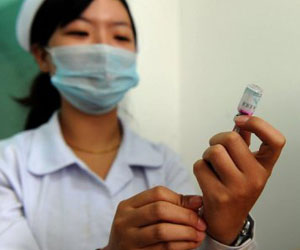India detects two cases of HMPV in infants, raising awareness about respiratory illness.

The Human Metapneumovirus (HMPV), a respiratory virus first detected in China, has now surfaced in India. Two confirmed cases have been reported in infants in Bengaluru, raising concerns about its spread. Here’s a closer look at what we know about HMPV and its implications.
Advertisement
First HMPV Cases in India
The Indian Council of Medical Research (ICMR) confirmed the detection of HMPV cases in Karnataka during routine respiratory illness surveillance. The details of the cases are:
- A three-month-old girl, previously diagnosed with bronchopneumonia, who has since been discharged from a private hospital in Bengaluru.
- An eight-month-old boy, also with bronchopneumonia, who is currently recovering after testing positive for HMPV.
Advertisement
Health Ministry Clarifies No International Link
The Union Health Ministry issued a statement clarifying that the affected infants had no history of international travel, highlighting that:
- HMPV has been in circulation globally, including in India, for some time.
- There is no unusual spike in Influenza-Like Illness (ILI) or Severe Acute Respiratory Illness (SARI) cases.
- The country remains equipped to manage respiratory illness outbreaks, as demonstrated by recent preparedness drills.
ICMR continues to monitor HMPV trends throughout the year, while the World Health Organization (WHO) provides regular updates on the virus’s status globally.
Advertisement
What is Human Metapneumovirus (HMPV)?
HMPV, first identified in 2001, primarily targets the upper and lower respiratory systems. It affects people of all age groups but poses the greatest risk to young children and older adults.
Common symptoms include:
- Fever
- Cough
- Nasal congestion
- Difficulty breathing
Severe infections may result in complications such as bronchitis or pneumonia. Symptoms usually manifest 3–6 days post-exposure.
Global Concerns of HMPV
HMPV has been reported in several countries, including the United States, Canada, and parts of Europe. In 2023, the U.S. Centers for Disease Control and Prevention (CDC) noted an 11% increase in cases. Although WHO has not declared an emergency, the virus’s spread has prompted vigilance among health authorities worldwide.
With no significant uptick in respiratory illness cases, the Indian health system remains on alert. Routine surveillance and proactive measures ensure the ability to manage any potential outbreaks. Citizens are encouraged to stay informed and adhere to basic respiratory hygiene to minimize risks.
Source-Medindia



